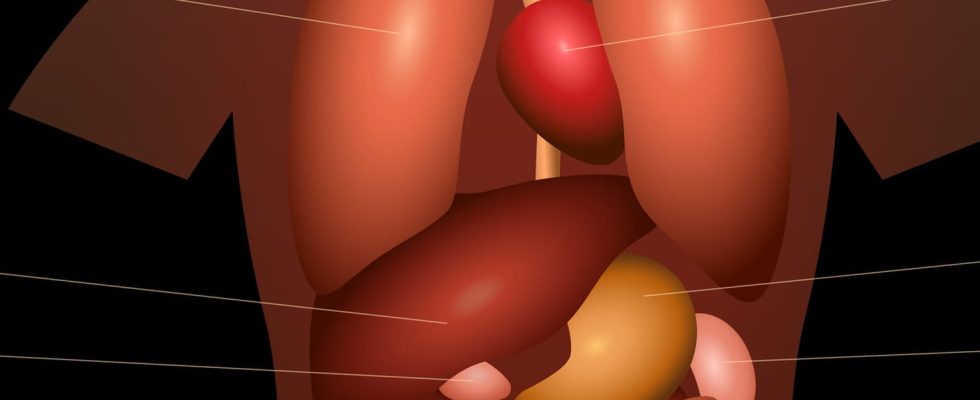An organ is a set of specific tissues capable of performing one (or more) specific functions. The human body has 78 organs.
The organs can be grouped into systems (there are 11) in order to perform more complex functions. For example :
- The bronchi and lungs are organs that belong to the respiratory system.
- The stomach and small intestine are part of the digestive system
- The penis and prostate belong to the reproductive system
- The brain belongs to the nervous system…
Organs are made of tissues and are designed to perform one or more particular, essentially physiological functions in humans or animals. Organs are necessary for healthy living.
List of organs of the human body
Note that the teeth are listed only once.
- Brain
- Cerebellum
- Brainstem
- Meninges
- Spinal cord
- Spinal bulb
- Skin
- Eye
- Ears
- Language
- Teeth
- Scalp
- Larynx
- Pharynx
- Epiglottis
- Trachea
- Bronchi
- Alveoli
- Pleura
- Salivary glands
- Thyroid gland
- Parathyroid glands
- Vertebrae
- Spinal cord
- Thorax
- Breasts
- Ribs
- Lungs
- Heart
- Aorta
- Arteries
- Capillaries
- Veins
- Esophagus
- Diaphragm
- Thymus
- Abdomen
- Pelvis
- Stomach
- Duodenum
- Jejunum
- Ileon
- Caecum
- Colon
- Rectum.
- Liver
- Mediastinum
- Gallbladder
- Appendix
- Missed
- Anus
- Pancreas
- Kidneys
- Adrenal glands
- Bladder
- Ureter
- Sacrum
- Coccyx
- Ovaries
- Fallopian tube
- Uterus
- Vagina
- Oviduct
- Vulva
- Urethra
- Clitoris
- Testicles
- Penis
- Scrotum
- Spermatic cord
- Prostate
- Seminal vesicles
- Lymph nodes
The list of 7 vital organs
Some organs are essential for life. It’s about brain, heart, lungs, kidneys, liver, pancreas and skin.
